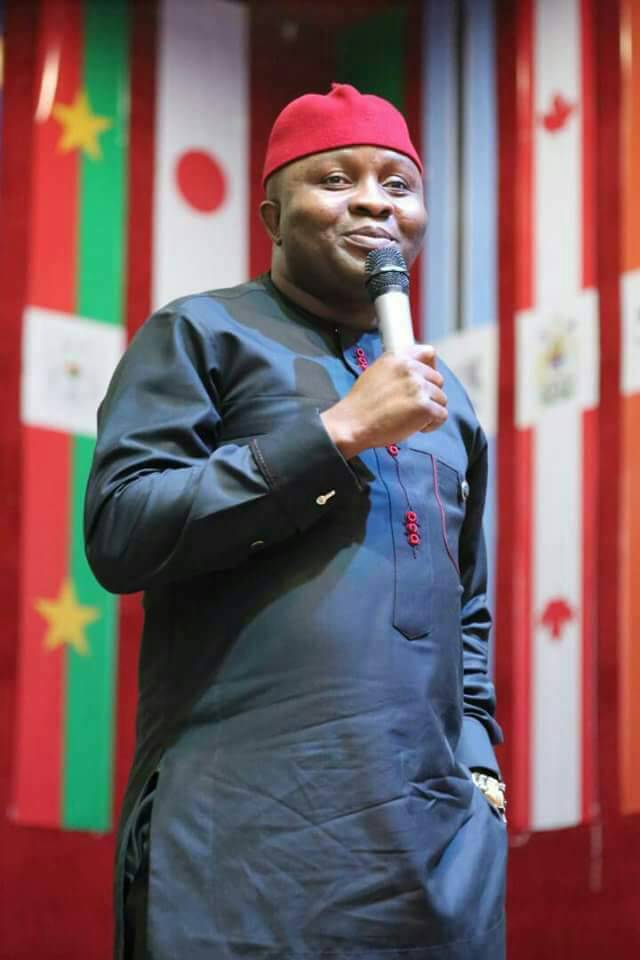International Oil Companies (IOCs) operating in Nigeria have commended the Nigerian National Petroleum Corporation (NNPC) for paying all the arrears of joint Venture (JV) cash call debts.
They gave the commendation at the 17th edition of the ongoing Nigerian Oil and Gas Conference and Exhibition, in Abuja on Wednesday.
They added that investor-confidence and appetite had gradually returned to the industry following the settlement of the JV cash call arrears by the NNPC.
The NNPC in December 2016 got a discount of 1.7 billion dollars from 6.8 billion dollars cash call debt to its JV partners, and was asked to pay $5.1 billion dollars instead.
The IOCs include Mobil Producing Nigeria Unlimited (MPN); Shell Petroleum Development Company (SPDC); Total Upstream Companies in Nigeria (TEPN) and Chevron Nigeria Limited (CNL) among others.
The chief executives of the IOCs, who spoke on investment opportunities in the sector, said they were glad the issue which obstructed negotiations for investments in Nigeria at their boards, had been resolved.
Osagie Okunbo, Country Chair of Shell companies in Nigeria and Managing Director of SPDC said: “For as long as I have been in this industry, we have been discussing cash call as a never-ending issue.
“I think that we were able to sit down together as an industry and government to try and tackle that issue and we should not underrate the importance of that.
“What that has done is that it opens up the appetite to have a conversation about investment.
“Nigeria is competing for capital with every other country in the world and sometimes we forget that, the reality is that each of these companies operate in 20, 30, 80 countries and people are competing for capital.”
According to Osunbor, is is significant that for the first time IOCs finished a year without NNPC owing cash calls.
Osunbor, however, said issues around security, contracting cycle, sanctity of contracts and thresholds of JVs and Production Sharing Contracts (PSCs) still needed to be sorted out in addition to the reform laws in the industry.
Also, the Managing Director of CNL, Mr Jeff Ewing, said the government did well by clearing the JV arrears.
“The execution of those agreements have gone very well, and it has really boosted our confidence in the JV.
“Some of the things that have happened have increased our activities in the JV because we have more confidence,” said Ewing.
He also said rising oil prices had brought a level of confidence in the industry.
He added that Nigeria needed to be competitive globally in the fiscal policies and ease of doing business, which he said was part of the discussion by IOCs with government.
“The government is taking some good steps on the PIB, changes to the JV oil terms.
“We are looking forward to that. We have also talked about our concerns at the public hearing on JV gas in deep-water term; they need to be competitive to draw more money into Nigeria.
“We see a lot of potential in Nigeria, there is a big oil and gas reserves here; we just need to have the right framework in place to have a globally competitive fiscal prices in place to help us develop,” he added.
Similarly, the Managing Director of Mobil, Mr Paul Mcgrath, explained that: “To unlock the potential in the country, we need first of all, certainty.
“The recent work that is being done on the petroleum industry bill and the reform in the national assembly, is an excellent piece of work, but it needs to have an end result.”
“We need to have an industry reform bill or set of bills that will attract international investment, not push it away. I’ve been very encouraged with the dialogues we’ve had with the national assembly and the technical teams till date.
“They have listened, they are listening and tried to engage the industry and I think that is very interesting.
“But at the end of the day, we need to stop talking about industry reform, have industry reform and then move on and unlock the potential.”

